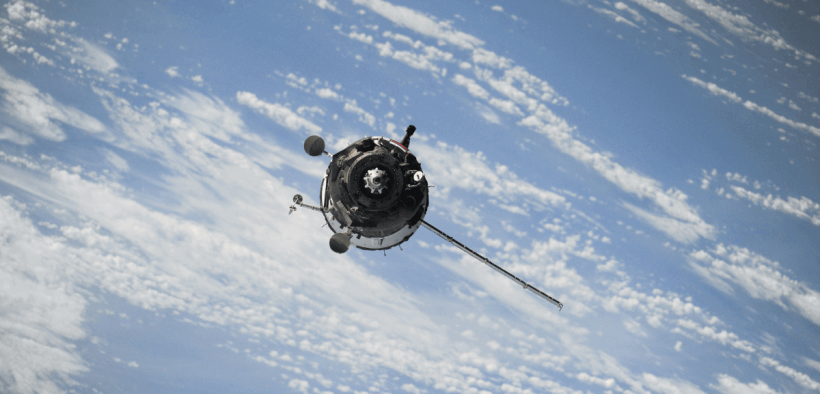Aussie tech company reaching for the moon with new space systems
Share

Tech company Advanced Navigation is gunning to become the first Australian company to have direct involvement in lunar exploration with its development of two unique autonomous motion support systems that promises to win it a seat at NASA’s table and supply core apparatus to its manned Luna landing scheduled in 2025.
“Inertial and robust reference-based navigation is a critical capability in space missions, where terrestrial navigation satellite systems such as GPS are non-existent,” Chief Executive Officer Xavier Orr explained.
“Our technology is estimated to deliver $85 million in value for lunar missions, helping deliver heavier payloads to further advance research, exploration and commercial developments.”
Advanced developed twin technologies known as Boreas X90 and LiDAV to help deliver unparalleled maneuverability.
Boreas X90 is designed to allow spacecraft extreme positioning capability during lunar missions without reliance on fixed references and base station control telemetry.
The development of Boreas X90 was backed by the federal government’s Moon to Mars Initiative as part of Australian Space Agency’s efforts to support industry growth and transformation in 2018.
Meanwhile, LiDAV or light-detection altimetry and velocimetry uses lasers to measure the velocity and position of lander vehicles relative to the moon’s surface in three dimensions.
“Spacecraft autonomy requires extraordinary situational awareness,” Mr Orr said.
The product of 25 years’ work with Australian National University and RMIT, the two patented technologies have an added advantage of being light enough to achieve more compact flight systems and help reduce a spacecraft’s overall weight.
Leading US-based space company Intuitive Machines, which provides lunar transport and communication and operations services, is keen to utilise the Aussie tech company’s products.
According to its chief tech officer Dr Tim Crain, Intuitive Machines’ ability to land payloads on the moon’s surface by using lightweight precision sensors is essential.
“It’s imperative our large lunar payload customers are confident that our systems will deliver the cargo safely and reliably,” Dr Crain said.
“Given the light weight and capabilities of the Advanced Navigation sensor systems, they are well suited for our Micro-Nova, a mini-extreme mobility lunar vehicle.”
Australian Space Agency head Enrico Palermo said it was great to see Advanced Navigation continue to disrupt the status quo.
“Their latest technology will not only increase Australia’s space capability but create exciting long-term export opportunities, bolster careers in the STEM sector and inspire the Australian public,” he said.
“This is just one example of how Australia is collaborating with NASA on its Artemis program and is building on over half a century of collaboration in space.”
The agency has also reached an agreement with NASA for an Aussie-designed, built and operated rover to be included in a future mission.
Advanced Navigation was founded in 2010 by Mr Orr and his uni mate Chris Shaw after researching on the Kalman filter for his thesis project.
“We were sufficiently confident that we self-funded the company,” he said.
“We took out as many personal loans and credit cards as we could… and fortunately, after that, all the contracts started rolling in and it was a success from there on in.”
With AAP
Eliza is a content producer and editor at Public Spectrum. She is an experienced writer on topics related to the government and to the public, as well as stories that uplift and improve the community.


Today’s Pick
11th Annual Aus Goverment Data Summit
April 1, 2025
7th Annual NZ Government Data Summit
May 7, 2025
3rd Public Sector Comms Week
May 14, 2025
Subscribe
We send emails,
but we do not spam
Join our mailing list to be on the front lines of healthcare , get exclusive content, and promos.
AI appointment Australia Australian boost boosts business businesses covid-19 cyber cyber attack cyber security cybersecurity data data breach data management defence Digital employment enhance enhances fraud funding governance government grants infrastructure Innovation Lockdown management new zealand NSW NZ online privacy public Public Sector queensland renewable energy scams security Social Media Technology telecommunications victoria
-

Understanding and building your digital strategy
Digital Government, Opinion
-

Featured Leader: Jamie Morse on multi-channel strategies for communication
Communications, Featured Leader
-

Featured Leader: Tegan Tembe of NSW Treasury on creating solid planning strategies and processes
Featured Leader
-

Wirraka Maya Health Service improves patient care with My Health Record
Learning
Show More-

Effects of ineffective communication in the workplace
Communications, Personal Development
-

7 ways you can enhance your personal development skills
News, Personal Development
-

5 advantages of working in the public sector
News, Personal Development, Professional Development
-

7 causes of communication issues in the workplace
Communications, News, Personal Development
Show MoreLast Viewed